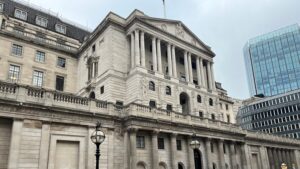Kirk, manager of the TwentyFour Select Monthly Income Fund, had a sobering message for investors hoping that European government bond yields had hit bottom, which he explained is a knock-on from events at the end of last year.
“The second half of 2014 was a game-changer for the ECB,” he said.
“The [then] refinancing rate of -0.2% set the scene for corporate treasurers and banks that had money sitting with the ECB to move it into other areas that had liquidity, such as government bonds. That started to drive government yields tighter.”
Kirk believes that the implementation of an ECB quantitative easing policy – announced in January and worth €1.3tn – means that sovereign bond spread will continue to tighten.
He elaborated: “Following the ECB announcement that it is going to buy sovereign bonds – which it can only buy in the secondary market – banks were forced along the yield curve into other areas where they could get positive yield. All the way through Europe yield spreads got squeezed tighter and tighter.
“If 30-year German bunds went back to trading at 2.5% in a year’s time it would represent a huge retrenchment and capital loss.
“This forces investors who previously saw German bunds as safe into Italian, Portuguese and Spanish bonds where there are better yields.”
Not only will there be adverse effects on the government bond space, Kirk declared, but a fall-out in other credit markets as the hunt for yield ventures into other territories.
“The ECB will be buying government bonds and asset-backed securities,” he explained. “However, there are nowhere near assets enough in that market to drive the balance sheet back to 2012 levels, which is where the ECB wants it. Yields in those asset classes will be squeezed too.
“After people have been forced out of European sovereign bonds they will look elsewhere, such as the corporate market, which is where we will see the secondary effect – a squeezed corporate spread.”
However, while many are concerned by the prospect of Greece exiting the eurozone and the potential tremors, Kirk brushed off suggestions that politics could have a telling influence on either bond spreads or the future of the eurozone.
“All market players have become addicted to central bank intervention, and [with QE] the ECB has continued to feed this addiction,” he said. “It will trump Syriza and other political factors and be the major driver of squeezing yields in all markets. It will not be a straight line – there will be periods of volatility – but there is no question that the yield spread will get tighter.
“A Greek exit will be conducted in such a way [by the European Commission] that it will have an effect in the short-term, such as market stress, but the risk of contagion is very low. The ECB is committed to making the eurozone – maybe not in my lifetime – fiscally and politically stable. Grexit will create some instability and volatility, but there will not be a contagion effect for the eurozone. The eurozone is here to stay, in its current form, for the foreseeable future.”







